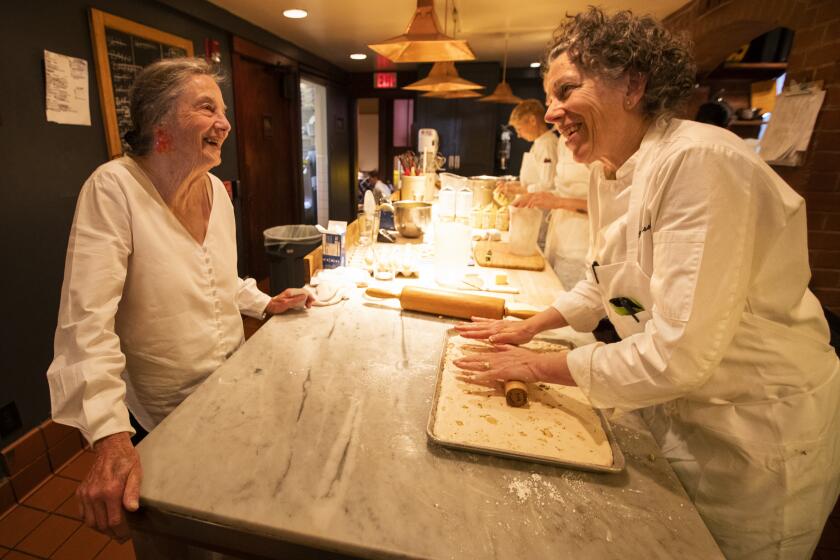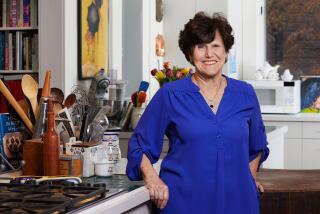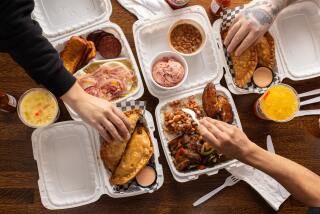Leah Chase’s enduring legacy and independent spirit remembered on this Twelfth Night
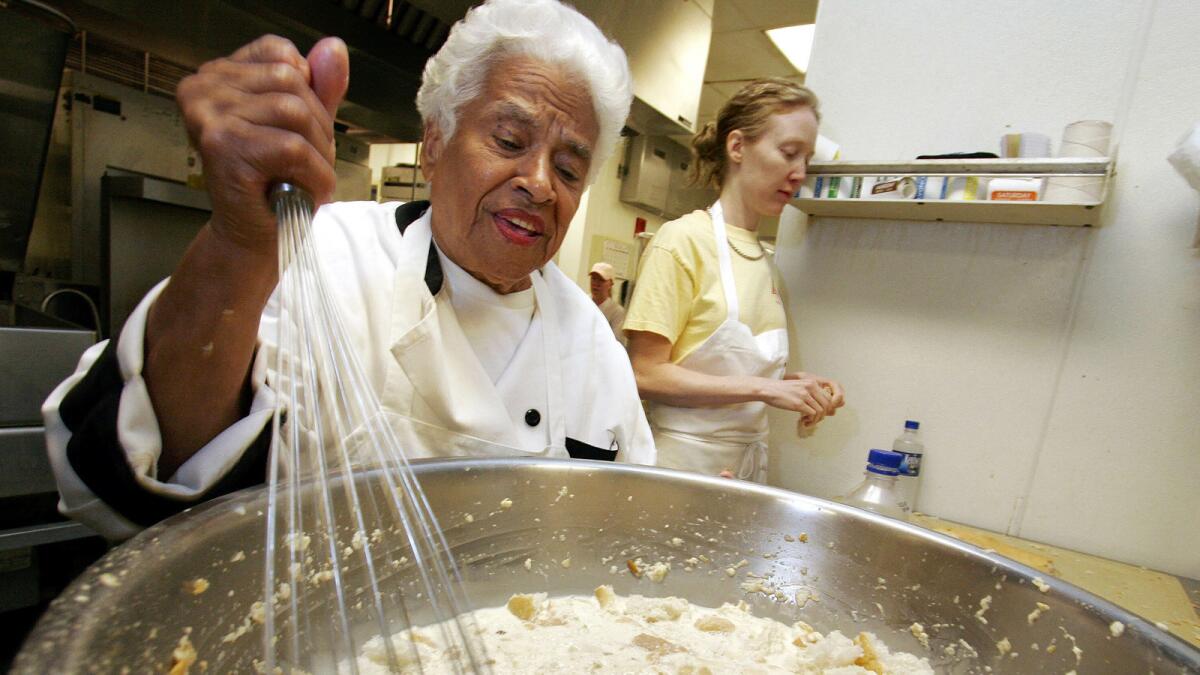
Jan. 6 marks a remarkably Creole confluence.
It is the day New Orleans celebrates Twelfth Night, which is to say it’s the 12th day after Christmas and the beginning of Carnival, a season that concludes the day after Mardi Gras with Ash Wednesday and the beginning of Lent. It is also the birthday of Leah Chase, the legendary New Orleans chef who died in June.
As my hometown prepares to celebrate Fat Tuesday, its signature bacchanal, my thoughts turn to Chase, one of the city’s great, standard-bearing chefs.
There were many remembrances of her published at the time of her death. They tended to focus on her steadfast maintenance of Creole culinary tradition and her uncanny ability to always have a grandmotherly adage at the ready.
It’s no surprise that Chase, a mother of four, grandmother of 16 and great-grandmother of 27, had accumulated some wisdom in her 96 years.
But now that I’ve had several months to reflect on her life and legacy, I understand, perhaps better than ever, that she was a far more complex figure than our memorials have sometimes allowed for.
It’s easy to let legends slip away and become just that — an accumulation of stories that paint a two-dimensional portrait of a person who, like all people, was more complicated. But to fully appreciate Chase’s legacy, let alone learn from it, we need to keep in mind that her independent spirit was the bedrock of who she was.
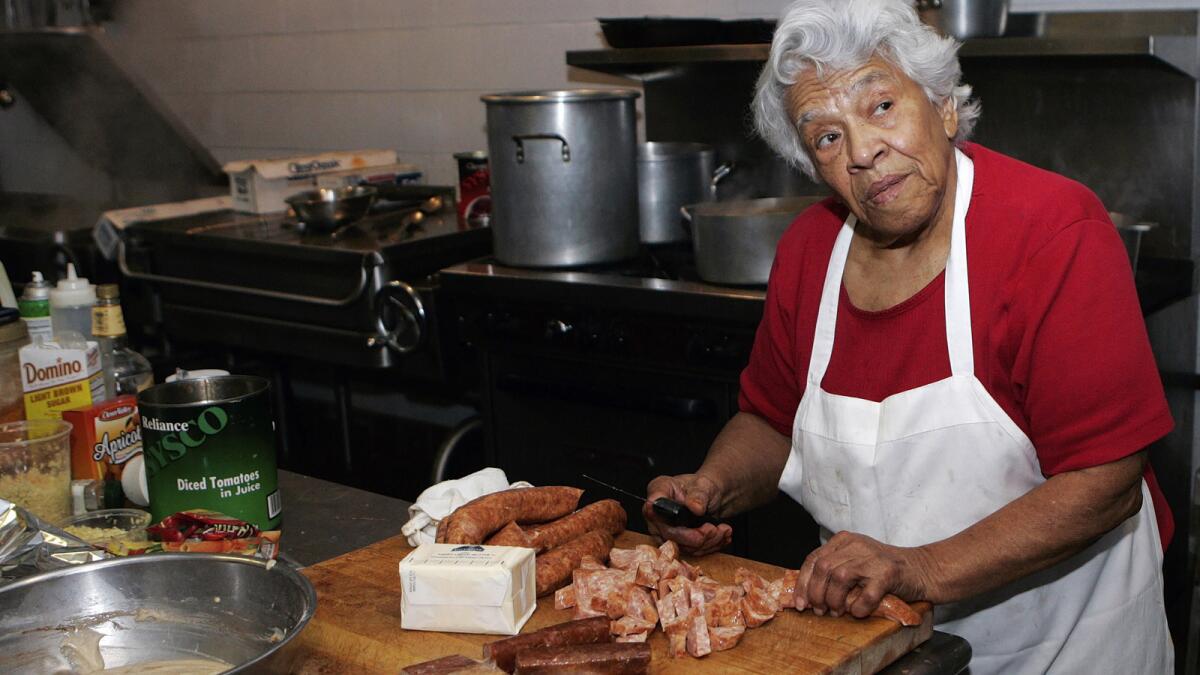
Sometimes her warm embraces and kind words could give way to a more prickly side. And often her opinions would veer radically from whatever orthodoxy you might have expected her to adhere to.
Leah Chase was a devout Catholic.
That was made especially clear to me one October nearly 20 years ago, during a Southern Foodways Alliance symposium. While many of us were more focused on bourbon than the Bible, she searched for and found a Saturday Mass to attend in the overwhelming Protestant city of Oxford, Miss.
For most of its history, her church has attacked homosexuality with all its might. But when I interviewed her in 2016 for First We Feast, she talked about the homosexual grandson of an old friend in a self-effacing, self-critical way that embodied her own ever-evolving understanding of other human beings.
“He said, ‘Miss Chase, I’m gonna bring back my fiancé,’” she recalled. Somewhat to Chase’s surprise, that fiancé was also a man. “And boy, this young man looks at me and [like] ‘This crazy old lady. She’s stupid,” Chase told me in a tone of self mockery.
“You’re looking at a person that don’t understand this lifestyle. I gotta adjust to that,” she said. “I’m not going to tell you it’s wrong. I don’t know that! I’m not God. I can’t judge you. But, you got to understand, that’s why I looked all surprised and crazy. We got to be good friends after that.”
In an era when female chefs are asserting themselves ever more forcefully in commercial kitchens, many look to Chase as a professional forebear. They are right to do so. More than 70 years ago, she walked into her mother-in-law’s sandwich shop and slowly remade it into an outstanding, iconic restaurant in a city full of iconic (but sometimes less than outstanding) restaurants.
Women are transforming baking’s status in the culinary world and California is at the center of that shift.
Her husband, Edgar “Dooky” Chase II, was a jazz musician five years her junior, and though his father’s name was on the sign, the restaurant slowly became hers to run. Over the years, she expanded the menu to include lobster Thermidor and shrimp Newburg and other dishes that were all but nonexistent on the menus of black-owned restaurants.
Chase was a champion of traditional Creole cooking. She almost singlehandedly returned gumbo z’herbes to prominence when that gumbo of green leafy vegetables had been largely forgotten in the city. But she was not above “cheating,” as she called it, when she used such modern ingredients as Kitchen Bouquet, the browning and seasoning sauce that most fine-dining chefs would scoff at.
While the unquestioned chef in her kitchen, at home she was very much the traditional country girl from Madisonville, La., a domestic-professional split that she maintained throughout her marriage.
After Rudy Lombard published “Creole Feast: 15 Master Chefs of New Orleans Reveal Their Secrets” in 1978, he wanted to take several of the chefs from the book to New York for a promotional dinner.
“I say, ‘Rudy, Dooky is not gonna let me go anywhere.’ So I said, ‘You could go ask him,’” she recalled. “So he went and sure enough, Dooky said, ‘Yes you could go.’ So here I am in New York with all these men.”
Among the details that Rudy Lombard would recount to me decades later was the fact that Leah Chase insisted on picking up the tab for one of those New York dinners even though a more traditional woman might have assumed the gentlemen would always pay.
“Well, I couldn’t eat off of them, I had to treat them somewhere,” she recalled.
Dooky Chase restaurant is located across the street from what was once the Lafitte public housing project.
“Sometimes people say, ‘Don’t go there because the project is over there, and that’s not a good neighborhood,’” she told April Grayson in a 2004 interview for the Southern Foodways Alliance.
Chase thought differently. “I don’t have one security guard, and I don’t have one bar or iron rails — nowhere. I don’t believe in bars because I don’t like putting myself in jail. But my protection is my neighbors. They would say, ‘Miss Dooky you know what I saw? I saw somebody crossing your line.’ So that’s my security — my neighbors.”
In 2007, when the Housing Authority of New Orleans decided to demolish those homes, opponents of the destruction, myself included, expected to find an ally in Chase. Contrary to expectation she supported it, expressing her confidence in the developers’ vision that a mixed-income housing complex would help disperse concentrated poverty and engender economic prosperity.
One photo of Leah Chase later in her life shows her with President Barack Obama when he dined at her restaurant in 2013. Chase chided him for putting hot sauce in her gumbo before even tasting it. And the president took the chiding in good humor.
Chase, who opened her restaurant to civil rights meetings during the segregation era, could be expected to be a fan of the nation’s first black president. But her longstanding friendship with President George W. Bush might come to some as a surprise. Yet after they met, the president seldom visited the Crescent City without calling on Chase.
“He said, ‘Do you want to come to dinner with me at Commander’s Palace?’” she told me in 2016. “So I get up there, and the man said, ‘Well, look where you’re sitting!’ He always sat me next to him.”
Another time, President Bush asked Chase to fix breakfast for him.
“I sure don’t feel like getting up at 6 o’clock in the morning to make breakfast for the president, but you can’t tell him no,” she said. “So I said OK. They came for 8 o’clock in the morning. I did not know who he was bringing. He brought the president of Mexico and the prime minister of Canada. That’s when we had the quail and the grits. And breakfast shrimp, and fried catfish. He loved it.”
Though she was not a fan of his politics, she did have an affection for Bush. “He was a good man,” Chase recalled.
In the days following her death, New Orleans paid tribute to Chase with jazz funeral-like performances outside her restaurant several nights in a row.
On Twelfth Night this year, the city will come alive with a set of processions to mark the beginning of Carnival. When the Mardi Gras season culminates on Fat Tuesday itself, the Zulu Social Aid and Pleasure Club will pass in front of Dooky Chase as it always does. It will be a bittersweet procession, marking both the passing and the enduring legacy of one of the city’s favorite daughters.
More to Read
Eat your way across L.A.
Get our weekly Tasting Notes newsletter for reviews, news and more.
You may occasionally receive promotional content from the Los Angeles Times.
